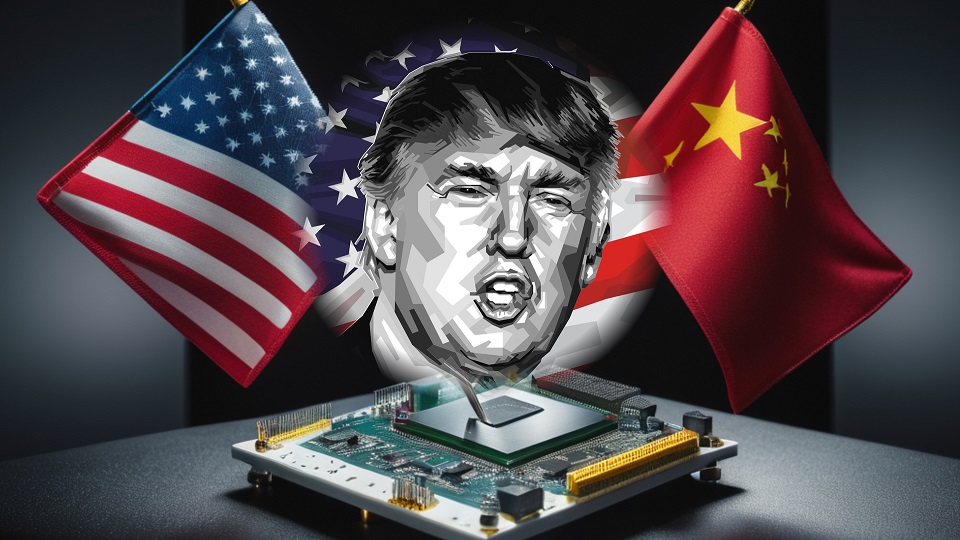아메리카 퍼스트의 선봉장 도날드 트럼프가 2024년 제 47대 미국 대통령 선거에서 승리하며 ‘트럼프 2기’ 시대가 유력해졌다. 미국 상·하원 선거에서도 한국시간으로 7일 오전 10시 기준 상원에서 공화당이 과반수 의석 확보에 성공했으며, 하원도 공화당이 과반을 점할 것으로 점쳐지는 가운데 의회와 행정부를 동시에 석권한 트럼프 정부에 의해 향후 △반도체 △자동차 △에너지 산업 분야에서 통상 관계에 대 변혁이 예고되고 있다.
반도체 대중 규제 확대, IRA 보다 리스크 저조
트럼프發 국내 자동차·배터리 규제 리스크 高
아메리카 퍼스트의 선봉장 도날드 트럼프가 2024년 제 47대 미국 대통령 선거에서 승리하며 ‘트럼프 2기’ 시대가 유력해졌다. 미국 상·하원 선거에서도 한국시간으로 7일 오전 10시 기준 상원에서 공화당이 과반수 의석 확보에 성공했으며, 하원도 공화당이 과반을 점할 것으로 점쳐지는 가운데 의회와 행정부를 동시에 석권한 트럼프 정부에 의해 향후 △반도체 △자동차 △에너지 산업 분야에서 통상 관계에 대 변혁이 예고되고 있다.
법무법인 광장이 트럼프 당선 이후 국내 주력 산업분야에 대한 미국의 규제 강화 및 통상 압력 가능성을 전망한 ‘미 대선 특집 이슈브리프’를 7일 발표했다.
보고서에 따르면 반도체 산업은 미국 내 공급망을 구축하는 리쇼어링 정책이 공격적으로 추진될 것으로 봤으며, 대중 반도체 수출통제 확대 및 우려대상기업(FEOC, Foreign Entity of Concern)에 대한 규제 강화가 예상된다고 밝혔다.
미국 칩스법에서의 반도체 기업 보조금 지원을 두고 트럼프는 지원 보다는 관세로 대응할 것을 후보 시절 줄곧 언급해 왔다. 다만 반도체 산업의 중요성과 고용 영향을 감안할 때, IRA 만큼 리스크가 크지는 않을 것으로 전문가들은 보고 있다.
전기차 및 배터리 산업에서는 파란이 예고된다. 보고서는 트럼프가 바이든 행정부의 친환경 정책을 폐기하고 IRA 보조금 축소 혹은 폐기 가능성을 예고함에 따라 미국 내 투자한 국내 △이차전지 △전기차 △태양광 패널 생산시설에 대한 세액공제 혜택 폐지가 우려되고 있다고 분석했다.
보고서는 IRA 막대한 시설 투자에 따른 미국 내 고용효과를 감안할 때 IRA 폐기를 염두에 두지는 않을 것으로 보고 중국산 핵심 광물 및 부품 기반 배터리에 불이익이 증가할 수 있을 것으로 내다봤다.
현재 완성차의 경우 한미 FTA로 미국-한국 간 관세율은 0%이며, 최근 국내 완성차의 수출액은 지난해 709억달러로 이 가운데 북미 수출액이 370억달러를 기록해 절반 이상의 비중을 차지하는 것으로 나타났다.
트럼프 2기에서 보편적 관세 적용으로 10% 내외의 완성차 관세가 적용될 경우 국내 완성차 업체의 수출 실적에 타격이 불가피할 것으로 예측된다. 보고서는 미국의 대 한국 무역적자 원인을 한국산 자동차로 지목하는 만큼 무관세 수입에 대한 FTA 폐기를 압박하며 고율 관세 부과 혹은 자발적 수출제한 조치 등의 압박이 있을 것으로 내다봤다.
이에 국내 생산시설에서 생산되는 완성차 수출 실적의 저하와 배터리 공급망 변화가 예고되는 만큼 전기차 시장에 혼란과 불확실성은 가중될 것으로 보인다.
